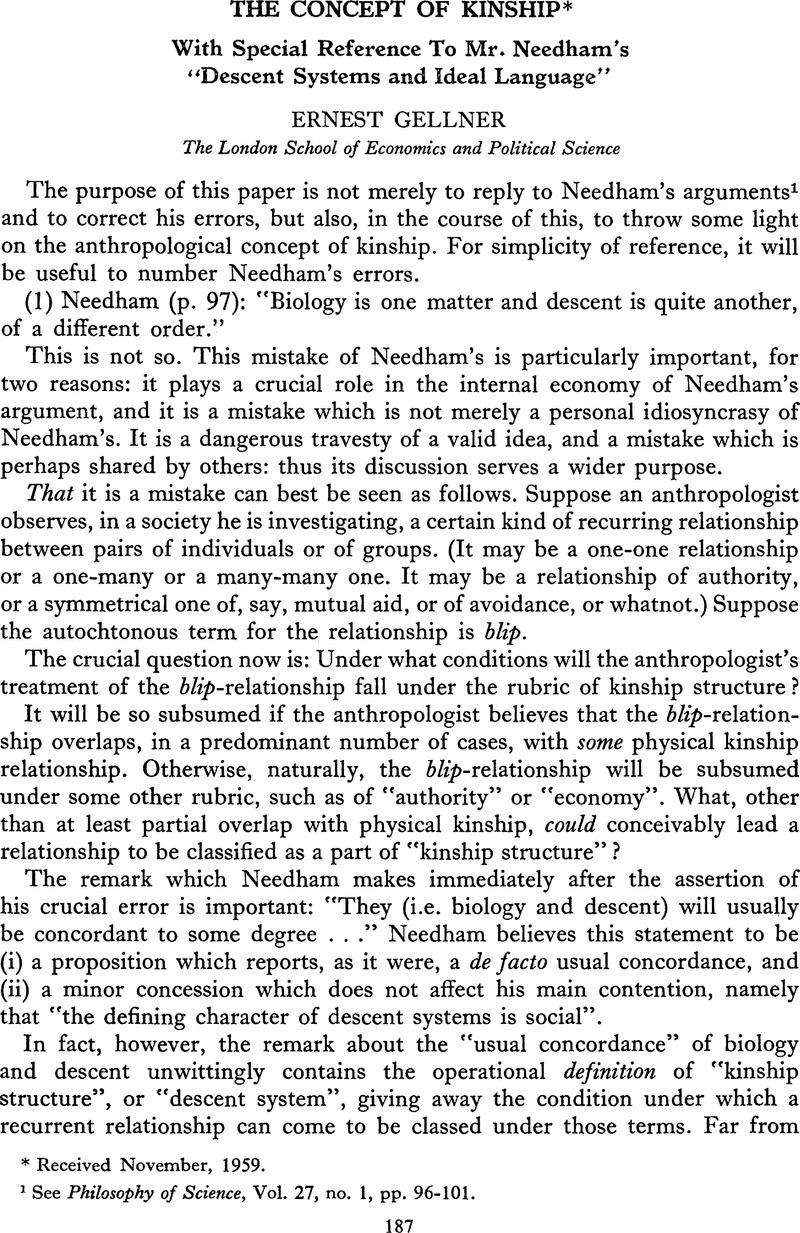Published online by Cambridge University Press: 14 March 2022

1 See Philosophy of Science, Vol. 27, no. 1, pp. 96-101.
2 There is one complication here: it might be objected that the brotherhood relation between the deceased man and his substitute-genitor might itself not be physical but a consequence of an earlier social “fiction”. In individual cases, certainly, but if it happened regularly, this would itself affect the classification of the kinship structure in which it happens.
3 For instance: in a certain society, the same term is used by a woman to describe her husband's father, and (by everyone) to describe the chief of the clan. Of course there is a tenuous connection between the two notions, but one would not, on the strength of this terminological overlap, place an account of clan chieftancy (which in this case is not a function of the kinship position of its holder) in the chapter dealing with kinship structure. If the overlap or otherwise with physical were really irrelevant, one would then have to deal with chieftancy under kinship in this context, for one could say that the term is borrowed from kinship.
4 A blood-brother may have to behave like a real one.
5 A godfather does not do the same things as a father, but to every father there may correspond one or a fixed number of god-fathers, performing duties complementary to the father's.
6 Disregarding for the moment things such as infant exposure, abortion, etc., which affect the quantity of surviving offspring.
7 Although, conversely, (to complicate matters), a view of the physical kinship position — correct or otherwise — is contained in the meaning of the autochtonous kinship term.
8 Needham: “For my part, I am fairly familiar with the topic of an ideal or logical language...”